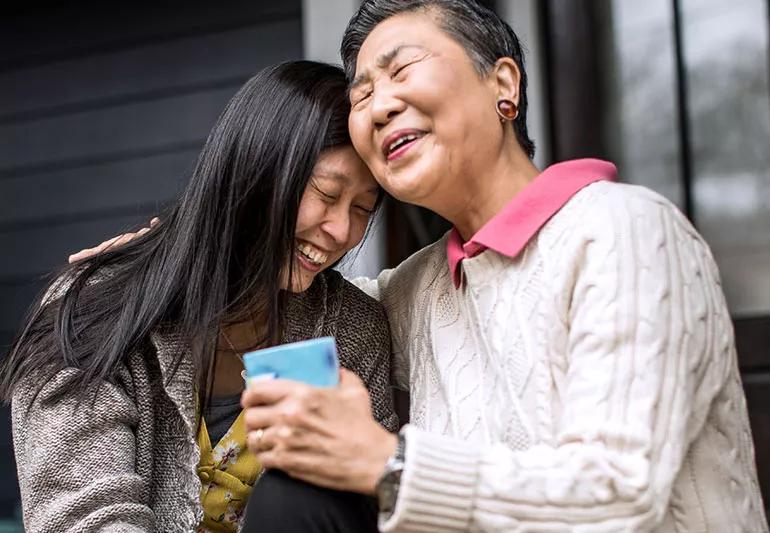Studies show that hugs have real health benefits

During the coronavirus pandemic, it may feel like hugs are a thing of the past. In fact, of all the things you may crave during this difficult time, a hug may top the list. The isolation and lack of human connection are part of what makes quarantining so difficult. The longing for human touch and connection is as basic as any human need, and there’s strong evidence that hugs don’t just make you feel good. Researchers have found that giving your loved ones an affectionate squeeze can actually be good for your health.
Advertisement
Cleveland Clinic is a non-profit academic medical center. Advertising on our site helps support our mission. We do not endorse non-Cleveland Clinic products or services. Policy
“The health benefits of giving and receiving hugs are quite impressive. Hugs have a therapeutic effect on people,” says psychologist Joseph Rock, PsyD. He says hugs are a good way to show someone you care about them. What’s more, they’re good for your health.
“Research shows that hugs can be healthy,” says Dr. Rock. “Hugs cause a decrease in the release of cortisol, a stress hormone, and other research indicates that hugs decrease your blood pressure and heart rate in stressful situations,” he adds.
Additional research found that giving and receiving hugs can actually strengthen your immune system.
Dr. Rock says hugging seems to have a therapeutic effect. That’s because your brain has specific pathways created to detect human touch.
“We can detach ourselves from people and get locked up in our own world,” he says. “Just the physical act of hugging someone really does connect us with them and lets down some of our defenses.”
Hugging communicates that you are safe, loved and that you are not alone — a much-needed message right about now.
Things have certainly changed since we’ve all become aware of coronavirus. Adhering to social distancing guidelines and masking up may make you fearful of physical touch or hugging. But is there a way to walk a balance between carefully distanced and also connected?
Advertisement
Given that hugging can actually raise the level of oxytocin or “feel good” chemical in your brain, connecting — in whatever way we can — may be just the ticket right now. The safest thing to do is to avoid hugs. But there are some safe ways to give and receive affection right now.
The coronavirus has definitely changed the way we give and receive affection. But it’s important for our mental health to remain connected to those we love. With some creativity, and a little planning, we can do so safely and share affection with those who are important to us.
Advertisement

Sign up for our Health Essentials emails for expert guidance on nutrition, fitness, sleep, skin care and more.
Learn more about our editorial process.
Advertisement

Communicating clear limits helps protect your time, energy and emotional well-being

Being hooked on love can cause unhealthy relationship patterns and obsessive thoughts

When someone guilt trips you, they’re using emotionally manipulative behavior to try to get you to act a certain way

This behavior is usually a sign that the other person doesn’t know how to handle conflict or is prone to being passive-aggressive

It can be harder to let go when you’ve invested time, energy and emotions — but it might be the healthier choice long term

Attachment theory suggests that your earliest relationships shape connections throughout your life

Love languages are defined by the way you prefer to give and receive affection

There are many different ways to love someone and yourself

Even small moments of time outdoors can help reduce stress, boost mood and restore a sense of calm

A correct prescription helps your eyes see clearly — but as natural changes occur, you may need stronger or different eyeglasses

Both are medical emergencies, but they are very distinct events with different causes